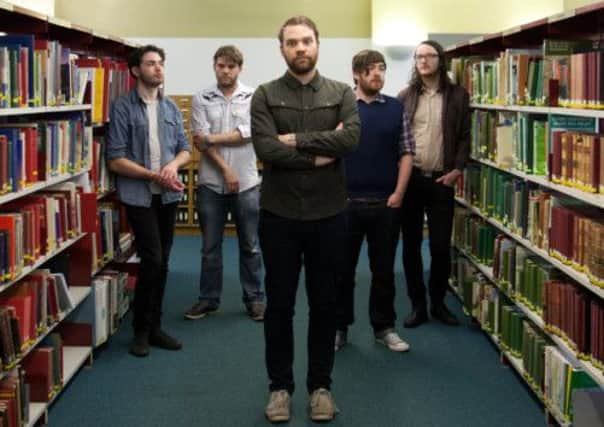Music tuition fees campaign forces council reviews


The move is part of a wide-ranging report on instrumental music produced last week by a Scottish Parliament group in response to Scotland on Sunday’s Let The Children Play campaign, which has been campaigning for tuition fees for instrumental music tuition in schools to be scrapped.
Children across Scotland are charged between £95 and £340 to learn a musical instrument in school, which campaigners claim is preventing some from exploring their musical talents.
Advertisement
Hide AdAdvertisement
Hide AdThe report which calls for a “national vision statement” for instrumental music tuition, recommends that councils “review their charging policies and concessionary schemes to ensure that pupils in their area are not prevented from learning a musical instrument”. It states that there “should be a general principle that pupils’ individual circumstances should not be a barrier to their ability to access and benefit from instrumental music tuition”. It could mean that some councils will come under pressure to scrap fees altogether.
Last weekend, Scotland on Sunday revealed that the report has also brought an end to tuition fees for children sitting SQA music exams, which five local authorities had also been implementing. The fees meant that even though a student was sitting an exam in which playing an instrument counted for up to 60 per cent of their final mark, they would still be charged up to £340 for doing so. The practice has now been brought to an end.
Other recommendations in the report, which was launched on Thursday at Leith High School in Edinburgh, include more collaboration among local authorities’ instrumental music services; professional development for instrumental music teachers; the use of video-conferencing for instrumental music tuition to children in remote areas; research to be commissioned on the impact of playing an instrument on children’s development and learning abilities, as well as on the Scottish economy; school inspections which will comment on the quality of instrumental tuition; a national conference on music education, which will be held in September; and the setting up of an instrumental music implementation group by the Scottish Government to oversee the recommendations. The group will report back to learning minister Alasdair Allan by the end of next year.
The group was set up last December in response to Scotland on Sunday’s campaign and charged with “getting a grip” on instrumental music tuition in Scotland by education minister Mike Russell. The government also announced the creation of a £1 million instrument fund for schools. Last year, 24 councils out of 32 across Scotland charged between £95 and £340, while five charged children sitting SQA exams. Following the launch of our campaign, two councils – Dumfries and Galloway and Dundee City – have scrapped all charges, while Midlothian and Dumfries and Galloway got rid of SQA music fees.
The campaign, which launched last September, has received the support of a number of high-profile Scottish musicians, including Dame Evelyn Glennie, violinist Nicola Benedetti, and the rock band Frightened Rabbit. The band’s drummer, Grant Hutchison, said: “We were really pleased to be asked to get involved with the campaign and the result here is great for children wishing to learn an instrument in Scotland. I would not be doing what I am today without my tuition and it’s great that more children will have equal opportunity to do the same.”
However, Labour’s new shadow finance spokesman MSP, Iain Gray, who initiated a debate in the Scottish Parliament last November in support of the campaign, said the report could have gone further. “The news that no council now charges for tuition for students doing music exams is very welcome, although I would have liked this to be made mandatory. I also think the news that school inspections will comment on the quality of instrumental tuition is very important. This is a powerful idea which will make a real difference.
“But I am disappointed that the report makes no recommendation on free tuition. Asking councils to review charges is all well and good, but they will argue that means-testing ensures charges do not exclude anyone. I am not convinced, and I wish the report had been bolder.”
David Green, chair of the group, said: “Research has highlighted the wide variations between instrumental music policies in this discretionary service run by local authorities. I hope that our recommendations set the foundation for a national vision for music education based on clarity, transparency and fairness which maximises access and opportunities for all our youngsters”
Twitter: @emmacowing